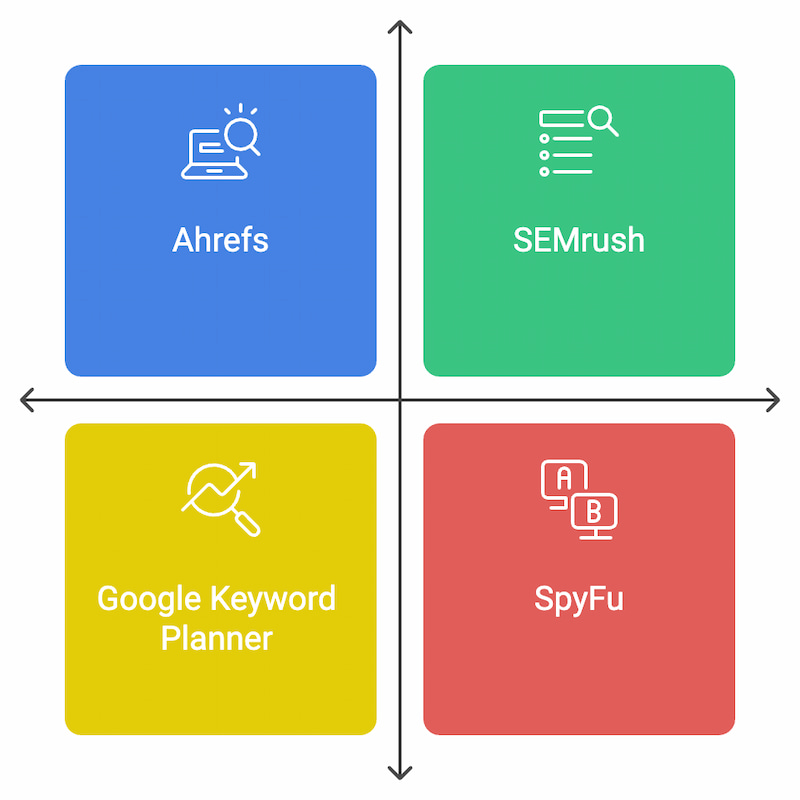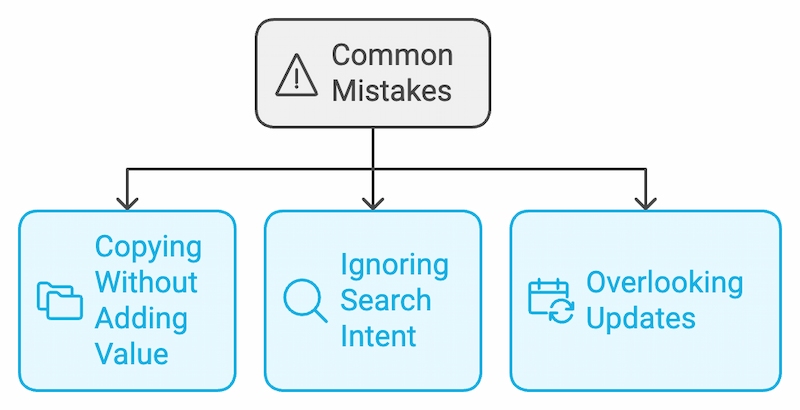How to Steal Competitors Keywords: The Google Ads Guide

When it comes to Google Ads or SEO, there’s a lot you can learn from your competitors.
They’ve done the hard work of finding effective keywords that rank and convert, so why not take advantage of their research? Learning how to steal keywords from competitors ethically can give your business a serious competitive edge.
In this guide, we’ll walk you through the exact strategies you can use to find competitors keywords and leverage them to boost traffic and conversions. It’s like playing detective—but for search marketing.
Why Spy on Competitors?
There’s no shame in looking at what’s working for your competitors. In fact, it’s one of the smartest moves you can make. Here’s why:
- Competitors often invest heavily in keyword research. By analyzing their top-performing keywords, you can skip the trial-and-error phase.
- You gain insights into the keyword research they’ve done to rank high or generate leads.
- It helps identify gaps in your strategy. Sometimes you’ll uncover keywords from competitors that you hadn’t considered.
Tools You’ll Need to Spy on Keywords

Before diving into strategy, let’s cover the best tools for competitor keyword research. You don’t need to be an SEO expert to use these—they’re user-friendly and provide actionable insights.
1. Ahrefs
Ahrefs is our go-to tool when we want to find competitors keywords. Simply enter your competitor’s domain into the tool, and it’ll show you which keywords they rank for. I’ve found hidden gems using their organic keywords report. It’s great for both PPC and SEO ideas.
2. SEMrush
SEMrush is another powerful tool for stealing keywords from competitors. Its competitive research section lets you compare keyword overlaps between you and your competitors. Bonus: It’s also great for PPC insights.
3. Google Keyword Planner
While it doesn’t give you competitor keywords. It is one of the free keyword research tools from Google can help you estimate search volumes for keywords. It’s a good starting point if you’re new to competitor keyword research to build out your seed list of keywords.
4. SpyFu
SpyFu lives up to its name. It’s perfect for identifying which keywords your competitors are bidding on in Google Ads. If you’re running PPC campaigns, this tool is a must-have.
How to Find Competitors Keywords?

Analyze Their Top-Ranking Pages
One of the easiest ways to find competitors keywords is by analyzing their top-ranking pages. Tools like Ahrefs or SEMrush will give you a list of keywords tied to those pages.
For example, when we worked with an e-commerce apparel client, we discovered that a competitor was ranking for “eco-friendly yoga mats.” We targeted that keyword and added unique content—then our rankings and sales soared.
Examine Their Paid Ads
Paid ads are another goldmine. By using SpyFu or SEMrush, you can uncover keywords from competitors’ PPC campaigns. Focus on high-performing keywords they’re spending money on, as these are likely to be profitable.
Look at Organic Search Results
Manually analyzing organic search results can also help you steal competitors keywords. Simply search for a term you want to rank for and note which competitors appear on the first page. Analyze their content and keyword usage.
Strategies to Ethically Steal Keywords
Target Keyword Gaps
Keyword gaps are terms your competitors rank for but you don’t. Use tools like Ahrefs’ Content Gap Analysis to identify these opportunities. When we used this strategy for a SaaS client in their Google Ads campaigns, it revealed keywords like “best CRM for small business” that weren’t in our arsenal but were ranking high for competitors.
Leverage Long-Tail Keywords
While short-tail keywords like “running shoes” are competitive, long-tail phrases like “best running shoes for trail running” are easier to rank for. Competitor analysis often uncovers these long-tail keywords, which are specific and high-intent.
Recommended Blog: How to use long trail keywords in Google Ads?
Refresh Your Content
Sometimes, stealing keywords isn’t about creating new content—it’s about refreshing old pages. Add competitors’ keywords to your existing pages to improve rankings. Just make sure the keywords fit naturally into the content.
Common Mistakes to Avoid

Copying Without Adding Value
The goal isn’t to copy your competitors—it’s to do better. If you’re targeting the same competitor keywords, ensure your content adds more value, whether through depth, visuals, or user experience.
Ignoring Search Intent
Not all keywords from competitors will align with your business goals. Always consider the search intent. Are users looking for information, or are they ready to make a purchase? Match keywords with the right content type.
Overlooking Updates
Competitors’ keywords change over time, as do search trends. Make it a habit to revisit your competitor keyword research periodically to stay ahead.
Measuring Success
Once you’ve implemented competitor keywords, track their performance. Use tools like Google Analytics and Google Search Console to monitor rankings, traffic, and conversions.
Focus on these metrics:
- Ranking improvements: Are your pages ranking higher for the keywords you’ve targeted?
- CTR (Click-Through Rate): Are users engaging with your search listings?
- Conversions: Are these keywords leading to sales or other desired actions?
By regularly analyzing these metrics, you can refine your strategy and stay ahead in even the most competitive industries.
Conclusion
Learning how to steal competitors keywords is one of the smartest moves you can make for your business. By using the right tools, analyzing competitors’ top pages, and filling keyword gaps, you can enhance your campaigns and drive better results.
Just remember, the goal isn’t to copy—it’s to outperform. With the right strategy, you can turn your competitors’ research into your advantage. So, start spying and make their best keywords your own secret weapon.
If you’re interested in having our expert team review your competitors for you, just get in touch, we’d love to chat.
